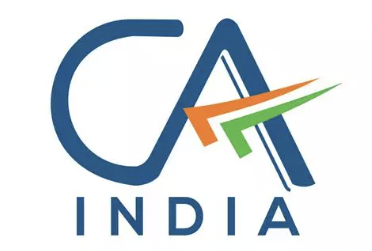Our Services
Startup Services

Startup Services
Post recognition a Start-up may apply for Tax exemption under section 80 IAC of the Income Tax Act. After getting clearance for Tax exemption, the Start-up can avail tax holiday for 3 consecutive financial years out of its first ten years since incorporation.
Eligibility Criteria for applying to Income Tax exemption (80IAC):
- The entity should be a recognized Start-up
- Only Private limited or a Limited Liability Partnership is eligible for Tax exemption under Section 80IAC.
- The Start-up should have been incorporated after 1st April, 2016
Important Provision:
Some of the Important provision under Income Tax Act 1961 with respect to Start-up Business;
- Section 17(2)(vi)- Taxability of ESOP
- Section 54GB-Exemption on Capital Gain if Investment is made in Start-up by sale of Residential property (house or plot of land)
- Section 56(2)(viib): Consideration received more than FMV at the time of issue of shares then difference amount shall not be taxable
- Section 79- Carry Forward and Set Off of Losses in Case of Closely Held Company.
Our team at Meru & Associates will assist in getting recognition as start-up, update you with start-up regarding government initiative and ensure smooth compliances of provision relating to start-up enabling you to operate your business effectively and efficiently.
FREQUENTLY ASKED QUESTIONS
Q.1. What are Startup Services, and how can a Chartered Accountant help my startup?
Startup services include a range of financial, compliance, and strategic advisory services tailored to the needs of new businesses.
Key points:
- Incorporation Assistance: Helping in the registration of your business, whether as a Private Limited Company, Limited Liability Partnership (LLP), or Sole Proprietorship.
- Tax Registration: Ensuring compliance with mandatory registrations like GST, TDS, and PAN.
- Accounting and Bookkeeping: Setting up sound accounting practices and maintaining accurate books of accounts.
- Compliance Management: Ensuring adherence to all applicable laws, including Income Tax, Companies Act, and GST Act.
- Funding Advisory: Advising on available funding options, including angel investors, venture capital, and government schemes like Startup India.
- Financial Planning: Offering strategic advice on managing cash flow, capital structuring, and tax optimization for the startup.
Q.2. How do I choose the right business structure for my startup?
Selecting the right business structure is critical to your startup’s success, as it affects taxes, liability, and growth potential.
Key points:
- Private Limited Company: Provides limited liability protection to shareholders and is the most preferred structure for investment and scalability.
- Limited Liability Partnership (LLP): A flexible structure combining the benefits of a partnership with limited liability for partners, suitable for small to medium-scale businesses.
- Sole Proprietorship: A simple structure where the owner is solely responsible for the business, suitable for small-scale ventures.
- Partnership: Suitable for a business run by multiple individuals, where partners share profits, losses, and liabilities.
- Factors to Consider: Liability, funding options, taxation, and management structure are key factors when choosing the right structure.
Q.3. What are the tax benefits and incentives available for startups under the latest 2025 laws?
The government offers several tax benefits and incentives to encourage entrepreneurship and help startups thrive.
Key points:
- Tax Holiday for Startups: Startups registered under the Startup India initiative can enjoy a 3-year tax holiday in the first 7 years of their operation.
- 80-IAC Deduction: Eligible startups can claim a deduction of up to 100% of profits for three consecutive years, provided they are recognized by the Department for Promotion of Industry and Internal Trade (DPIIT).
- Capital Gains Exemption: Capital gains earned from the sale of assets used for business are exempt from tax under certain conditions if the startup meets specific criteria set by the government.
- Tax Benefits on Investments: Investments in startups registered under Section 54GB can be exempt from capital gains tax if reinvested in the purchase of new residential property.
- GST Relief: Startups with turnover less than ₹40 lakhs (₹20 lakhs for service providers) are exempt from GST registration.
Q.4. How can I register my startup for GST, and what are the benefits?
If your startup crosses the minimum threshold for taxable sales, registering for GST is mandatory, and it brings several benefits.
Key points:
- GST Registration Requirement: If your annual turnover exceeds ₹40 lakh (for goods) or ₹20 lakh (for services), GST registration is mandatory.
- Benefits of GST Registration:
- Input Tax Credit (ITC): You can claim a credit for the tax paid on business-related purchases.
- Legitimacy: GST registration lends legitimacy to your business and helps in building trust with customers.
- Expansion: GST allows you to do business across state borders without facing double taxation.
- Ease of Doing Business: GST simplifies the tax structure, making it easier for businesses to comply with tax laws.
- Voluntary Registration: Even if your turnover is below the threshold, you can voluntarily register for GST to avail of the benefits.
Q.5. What government schemes can help my startup access funding or other support?
Several government schemes are designed to help startups secure funding, technical support, and other benefits.
Key points:
- Startup India Scheme: A flagship program that offers tax benefits, funding opportunities, and easier compliance for startups.
- Pradhan Mantri Mudra Yojana (PMMY): Provides microfinance loans up to ₹10 lakh to non-corporate, non-farm small/micro-enterprises.
- Stand Up India Scheme: Offers financial assistance for SC/ST and women entrepreneurs to set up greenfield enterprises in the manufacturing, services, or trading sectors.
- Atal Innovation Mission (AIM): Provides funding support and mentorship to innovative startups in various sectors.
- Credit Guarantee Fund Scheme for Startups (CGSS): Provides a guarantee to banks for loans extended to startups, making it easier for them to access funding.
